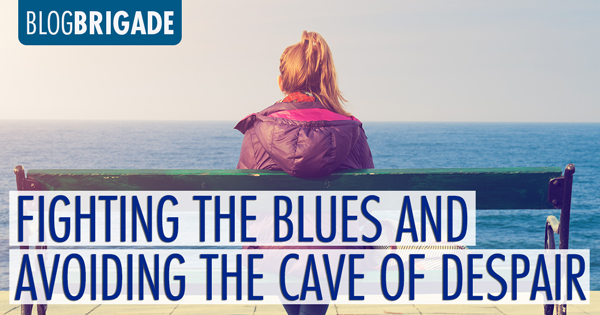

Kelli
My favorite thing during the holidays is sitting in my home late into the evening with the house quiet and the lights from our tree casting a warm glow into the shadows. I sometimes have a garland with white lights intertwined around an archway or up a stair railing. The centerpiece for me, though, is our tree. I have ornaments that remind me of duty stations, particular years and most, importantly people, who I dearly love but no longer have here with me. Grief in the holiday season can be a difficult time for many.
As I grow older and life has more opportunity to refine me by the various fires that come with living, I find the holidays bring a mixed bag of emotions. As a little girl it was joy, happiness and fear of Santa. A fear my family very much took advantage of for their entertainment, but that is for another blog another time…
Along the way I’ve lost loved ones to death. The grief and the pain of their absence are now woven into my holiday traditions, and my memories of them and how I dearly miss those individuals have become part of my personal reflections of the year that has passed.
Depending on where you are in the grief timeline after losing someone, the holidays can be almost unbearable. What might have been a joyful noise is now loud and obnoxious. The traditional holiday salutations ring hollow and insincere. The twinkling lights, shiny tinsel and festive wrappings are all garish and crass, especially during that first holiday season after a loss. Sometimes you wonder if you’ll ever feel joy again.
You will and you do.
I can’t tell you how or when it happens. It’s different for everyone. There is no fixed formula or one proper way to express grief or to mourn. It’s as individual as you are.
What I can tell you is you never get used to the loss of someone, but you do learn to live with the understanding that they are gone. It gets easier and less tender, except in the moments when it hits you like an unexpected wave washing over you and crushing you beneath the current. The holidays can sometimes be that big wave.
The losses of my father, grandfather and a granddaughter have had the greatest impact on my life thus far. With their deaths our family changed the management of affairs in just about every aspect of life, to include the holidays. They played big roles in how, where and what we did for various holidays.
I wanted to share a few things I’ve done and what some of my friends have done to bridge the gulf that exists between grief and joy during this time of year.
My tree
As I hang ornaments, and later show them to my children and grandchildren, it opens the door for conversations that can be tender. It helps us talk about what someone meant to us and why. This ritual has often been the catalyst for conversations about our loved ones, about who they were, how they lived and, more importantly, what they believed and stood for.
I have red cardinals for my grandfather and his mother, my great grandmother. He loved watching for the first cardinals of the season through his big dining room windows that looked over his beautiful backyard.
My father, a pilot and lover of anything tropical, is represented by several different ornaments. Most of my children remember him and it gives them great comfort to be the one to find a special place on the tree for “him.” We have airplanes, a sleigh from Hawaii and a sand dollar from Key West.
Other ornaments were passed down to me and make me feel closer to those who are no longer here, like the one of my mother and father’s wedding photo and the one beautiful blue Christmas ball that has survived 45 years from my parents first Christmas in Spain right before I was born.
Traditions
Other ways I’ve found to ease the pangs of grief is by carrying on the traditions I know they loved. Sometimes we’ve tweaked them depending on where we are, but the core of them is the same nonetheless.
One particular tradition my father enjoyed was my husband and sons building a manger. It was usually out of landscape logs and other materials around the property, but every year the boys would put it together. Then the kids would dress up in outfits depicting the dress of ancient Jerusalem. When doing this in more recent years, inevitably we hear things like, “remember when…” and someone will tell of a past holiday. Like “Remember when Granddaddy wanted to hang Rebekah from a pulley and hoist her from that big tree over the manger as the angel and Dad talked him out of it?”
Or “Remember when Adam was jumping from one bale of hay to another and fell and had that baling string stripe across his face for months?”
Oh yes, injuries are typically part of our memories…
Sometimes, especially the first year or so, it doesn’t feel right not setting them a place at the table. It feels like someone is missing and they are. I have friends who have set them a place, knowing the chair would remain empty but the family found comfort in recognizing them, showing they were not forgotten.
Humor
Laughter IS some of the best medicine. I wish it could cure all that ails a grieving heart because it doesn’t. It can, however, bring a few moments of relief from what can be a heavy burden to bear.
One year I did a candle ceremony where I lit a candle for each family member we were missing. My brother-in-law was really glad that didn’t become a tradition. He didn’t trust me with lighted candles inside the house. Some things you try and discard. Everything can’t be for everybody.
So do what you are comfortable with. It’s your grief, it’s your sorrow and no one can tell you how to fix it. They can only share what has helped them.
Most importantly, it’s okay to not be okay for a while. Grief, loss and deep sorrow are part of our human experience. These emotions are somewhere along each of our paths and as long as we recognize there is no way around them, we will be able to walk through them.
Most of the time we come out on the other side kinder, more gentle and little better at reaching out and loving our fellow man. We are a little more tender and aware of the fragility of life. Isn’t that what the messages of the holidays are about? Gratitude, peace, love, hope and a giving heart. Sharing our generous spirits with those around us and maybe, just maybe, being that helping hand for someone who is new to the journey of grief.











